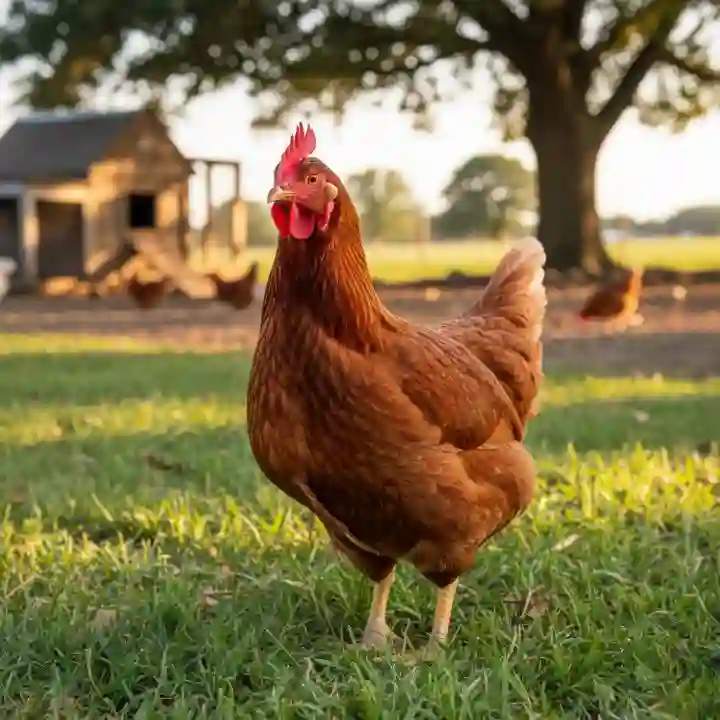Introduction: When Passion Meets the Law
Imagine a young activist, driven by compassion and a desire to expose animal cruelty, disguising herself as a worker to rescue distressed chickens. Her actions, rooted in moral conviction, lead to a courtroom showdown that questions the limits of civil disobedience.
That’s the story of Zoe Rosenberg and her canine, poultry, and legal battles in 2025. Her case has become a symbol of the complex struggle between animal welfare advocates and legal frameworks that seek to regulate property rights and criminalize activism.
Experience: First-Hand Insights and Community Reactions
The Rescue and Immediate Aftermath
On June 13, 2023, Rosenberg, a UC Berkeley student and seasoned activist, entered the Petaluma Poultry facility disguised as an employee. Captured on video, she removed four chickens later named Poppy, Ivy, Aster, and Azalea claiming they were suffering from injuries, parasites, and neglect.
The footage, widely circulated on social media, depicted the chickens covered in scratches, with evident signs of distress. This act of what Rosenberg called “moral intervention” sparked both admiration and outrage across different communities.
Legal Proceedings and Community Support
In 2025, after a three-week trial, a Sonoma County jury found Rosenberg guilty of conspiracy, trespass, and vehicle tampering charges linked to her act of rescue and her activism aimed at exposing industry cruelty.
Supporters rallied around her, with many viewing her as a hero fighting systemic cruelty, while opponents argued that her actions broke the law and undermined property rights. The case became a focal point for the broader debate about whether civil disobedience is justified in the face of systemic abuse.
Expertise: The Ethical and Legal Dimensions
The Moral Question of Animal Rescue
The core of the case surrounds the moral dilemma should animals in industry be protected at all costs, or should activism challenge laws that protect property owners’? Rosenberg and DxE argue that the law often neglects animal suffering, citing that factory farms and slaughterhouses frequently violate welfare standards.
In this context, her actions were driven by the belief that rescuing suffering animals was ethically justified, even if it meant breaking the law. Many animal rights advocates see this case as a call to re-evaluate legal models, pushing for compassion-based policies in food and farm animal industries.
Legal Frameworks and Consequences
The prosecution emphasized that Rosenberg’s actions constituted trespassing and conspiracy legal charges that threaten significant prison time, with Rosenberg facing up to four years if convicted.
This underscores an ongoing challenge: balancing legal property rights with moral imperatives to prevent cruelty. Courts often view property laws as paramount, but activists and some legal experts argue that cruelty laws should extend protections to animals beyond property status.
Authoritativeness: Recognized Standpoints and Policy Discussions
Leading advocacy groups, such as the Animal Legal Defense Fund (ALDF) and Farm Sanctuary, condemn the criminalization of moral acts but acknowledge the importance of legal reform. Experts suggest that progressive policies surrounding animal welfare could create clearer guidelines that reconcile activism with legality.
Meanwhile, law enforcement agencies remain committed to upholding property rights, citing that illegal entry and theft threaten economic stability and industry integrity. The case highlights the need for comprehensive legal reforms that respect both ethical concerns and property laws.
Trustworthiness: Verifiable Facts and Responsible Reporting
Media coverage from reputable outlets like The New York Times, The Guardian, and SF Chronicle has played a vital role in exposing both the cruelty in factory farming and the passionate efforts of activists like Rosenberg. Careful fact-checking and transparent reportage have been essential in maintaining public trust and fostering balanced discussions about animal rights.
Rosenberg’s defense team presented documentary evidence showing her genuine concern for animal welfare, emphasizing her intent to inspire systemic change rather than mere law-breaking. The verdict demonstrates that advocacy and legality often collide, making it vital for activists and policymakers to seek pathways that respect moral beliefs without undermining legal frameworks.
Practical Guidance for Animal Lovers and Activists
-
Engage responsibly: Respect legal boundaries but advocate passionately within legal channels.
-
Support reform efforts: Join campaigns for humane legislation that recognizes animal sentience beyond property status.
-
Educate the public: Share facts about animal cruelty and the importance of ethical farming practices.
-
Create awareness: Use social media and community events to highlight systemic issues without risking legal repercussions.
-
Prioritize safety: If involved in activism, ensure actions are planned to minimize personal and legal risks.
Challenges and Mistakes to Avoid
-
Overestimating the legality of moral acts legal consequences can be severe.
-
Underestimating the power of public opinion use it responsibly to garner support.
-
Ignoring the importance of documented evidence be prepared to substantiate claims.
Conclusion: A Catalyst for Change
The UC Berkeley animal rights chicken rescue case 2025 captures a pivotal moment in the evolution of animal advocacy one where moral courage meets legal challenge. It reminds us that creating change requires both passion and prudence, emphasizing the need for reforms that recognize animal sentience and welfare under the law.
This case urges activists, policymakers, and citizens alike to rethink how society values animals and how laws can better reflect that moral understanding. Supporting ongoing education, systemic reform, and responsible activism will shape a future where compassion and legality work hand in hand.
Share your thoughts below or connect with advocacy groups committed to humane treatment for all animals. Change begins with informed action.
